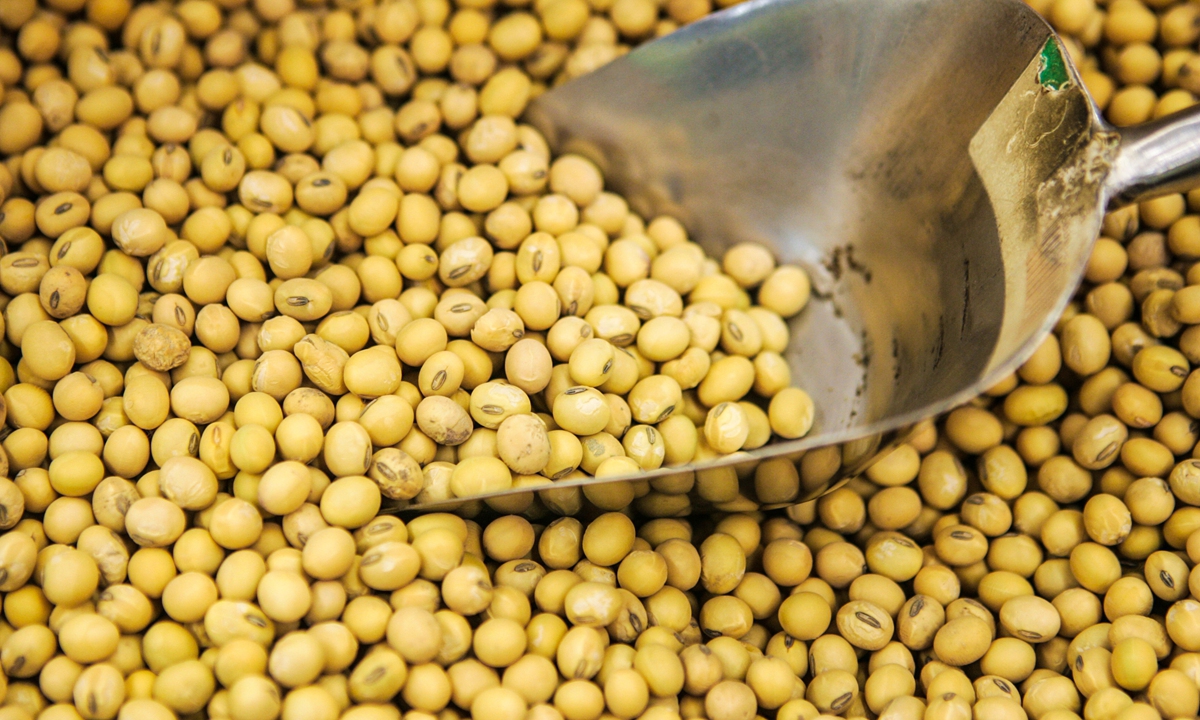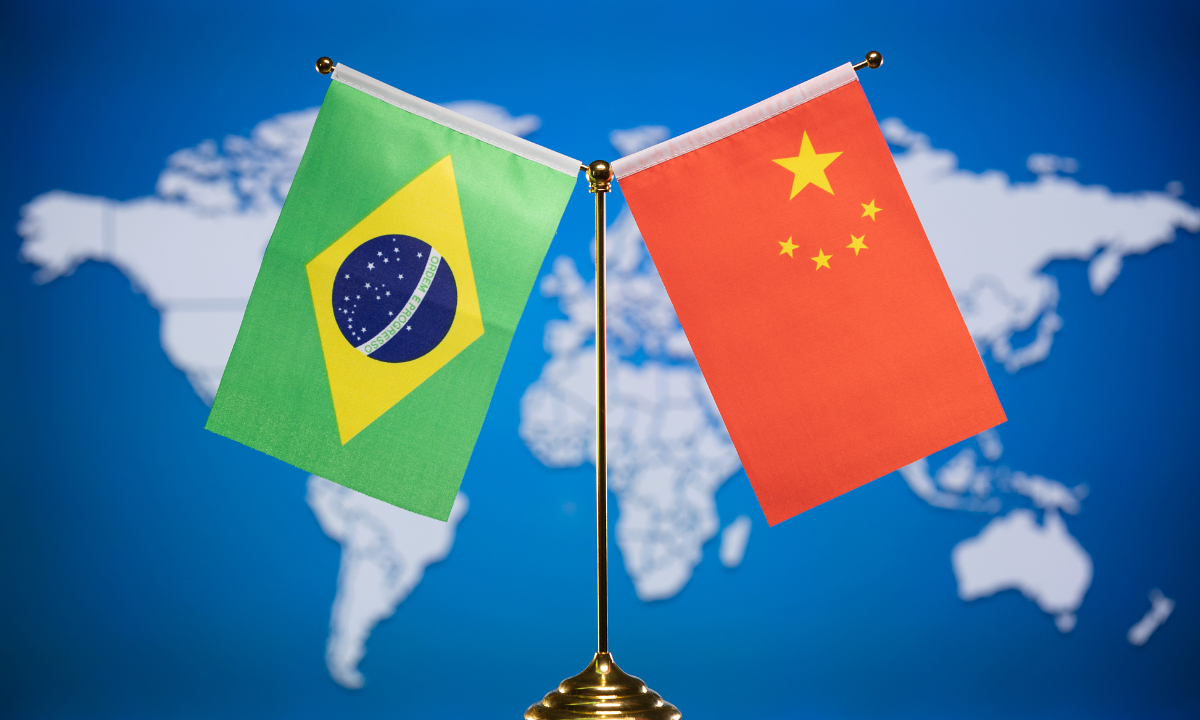Brazil becomes China’s largest agricultural produce trader, followed by US, Thailand, Australia

Soybean Photo: VCG
Brazil has maintained its position as the largest source of agricultural imports for China for six consecutive years starting 2018, led by soybean and corn shipments, data released by China's Ministry of Agricultural and Rural Affairs showed.
The US remained as the second-largest agricultural exporter to China last year, but the value of shipment has dropped by around 22 percent year-on-year to $32.9 billion in 2023.
In 2023, Brazil exported $58.62 billion of agricultural products to China, setting a new record and accounting for 24.85 percent of total China's agricultural imports, followed by the US with a share of 13.96 percent. They were followed by Thailand, Australia and Indonesia.
Brazil's agricultural exports to China also accounted for over half of its total exports to China last year.
Zhang Weiqi, director of the Brazil Research Center under the Shanghai International Studies University, told the Global Times that the closer bilateral agricultural trade was a result of multiple factors, including an uptick in soybean and corn exports, and lingering China-US trade frictions that prompt Chinese traders to shift from US suppliers to other sources.
In 2018 when the US launched a tariff war against China, Brazil overtook the US to become the largest agricultural exporter to China.
In 2023, China imported 69.95 million tons of soybeans from Brazil, up 29 percent year-on-year, customs data showed. Soybean imports from the US slumped 13 percent year-on-year to 24.17 million tons last year.
In January last year, a cargo ship from Brazil carrying 68,000 tons of corn arrived at the port of Mayong in South China's Guangdong Province, marking the first time that China has imported Brazilian corn in bulk.
"Brazil is a big agricultural country, while China is the world's largest agricultural product consumer and importer, which provides the foundation for expanding cooperation between the two countries," Zhang said.
He added that the two countries are also complementary in seasonal agricultural supplies, which paves way for further collaboration.
It is expected that closer economic relations between China and Brazil will serve as a cornerstone for more pragmatic cooperation between the two countries, according to analysts.
"The year of 2024 mark the 50th anniversary of the establishment of diplomatic relations between China and Brazil. It is expected that the two countries will take it as opportunity to build bilateral cooperation into an example of cooperation between China and Latin American countries, and the South-South cooperation," Zhang said.
Global Times




